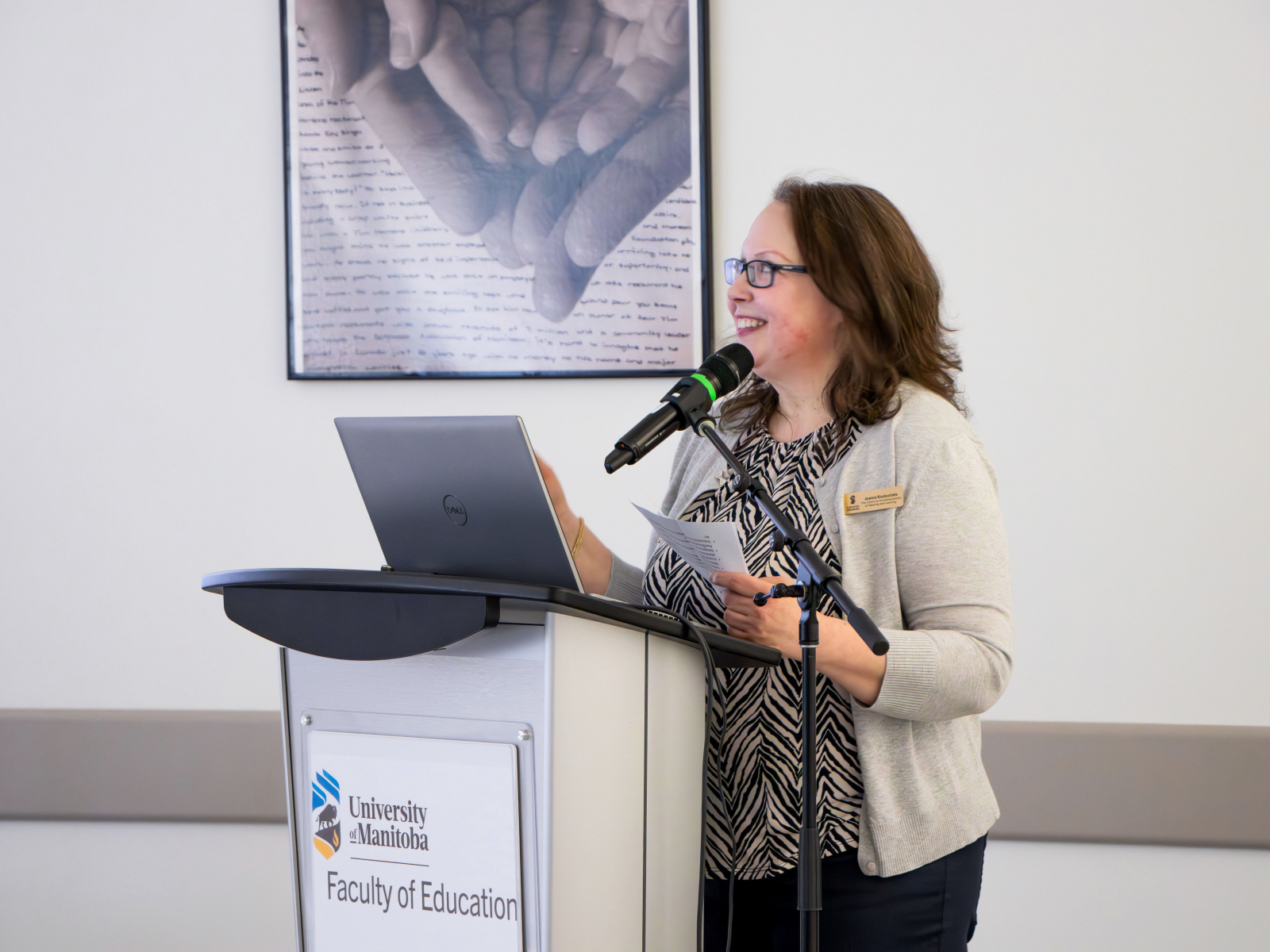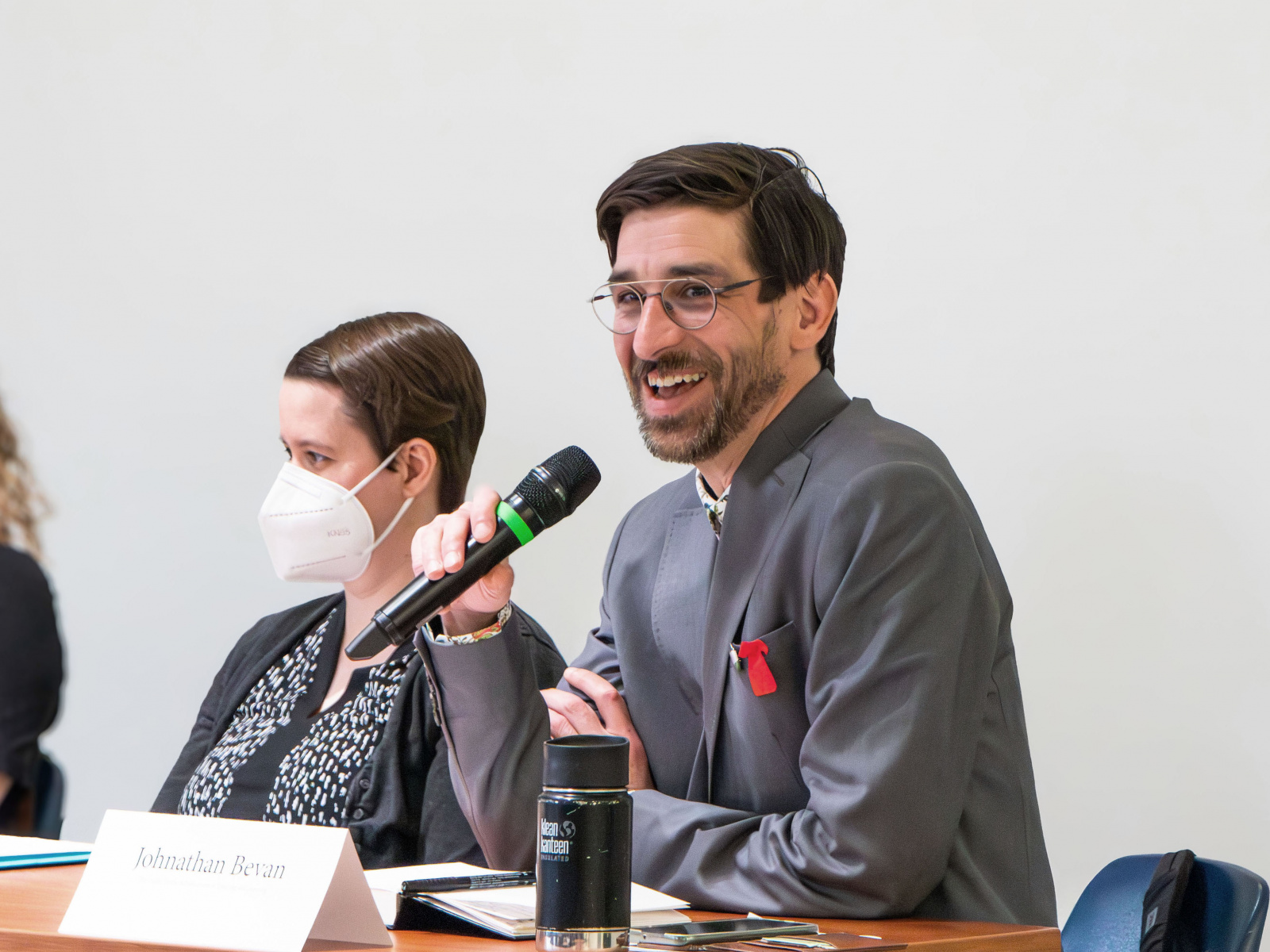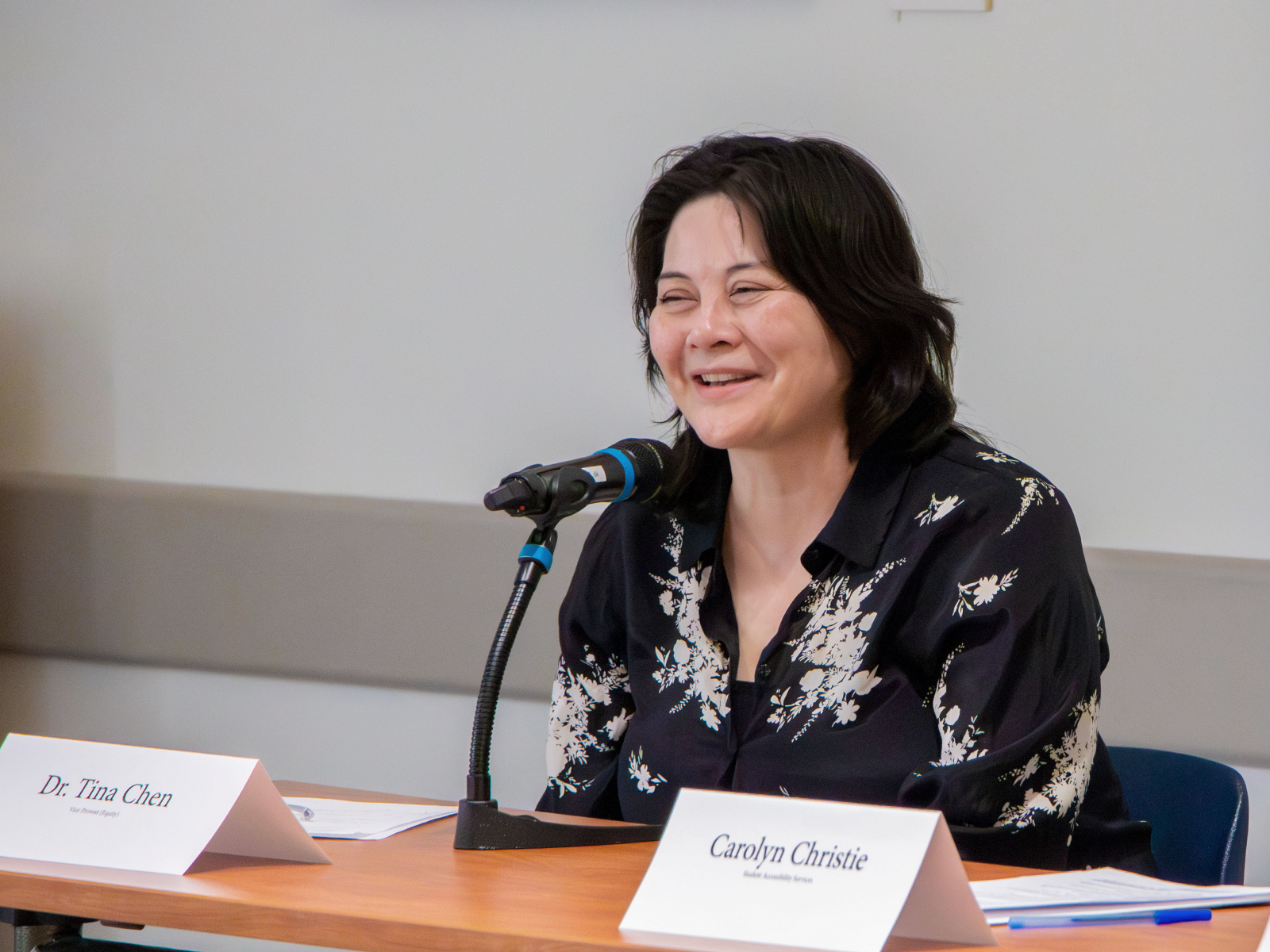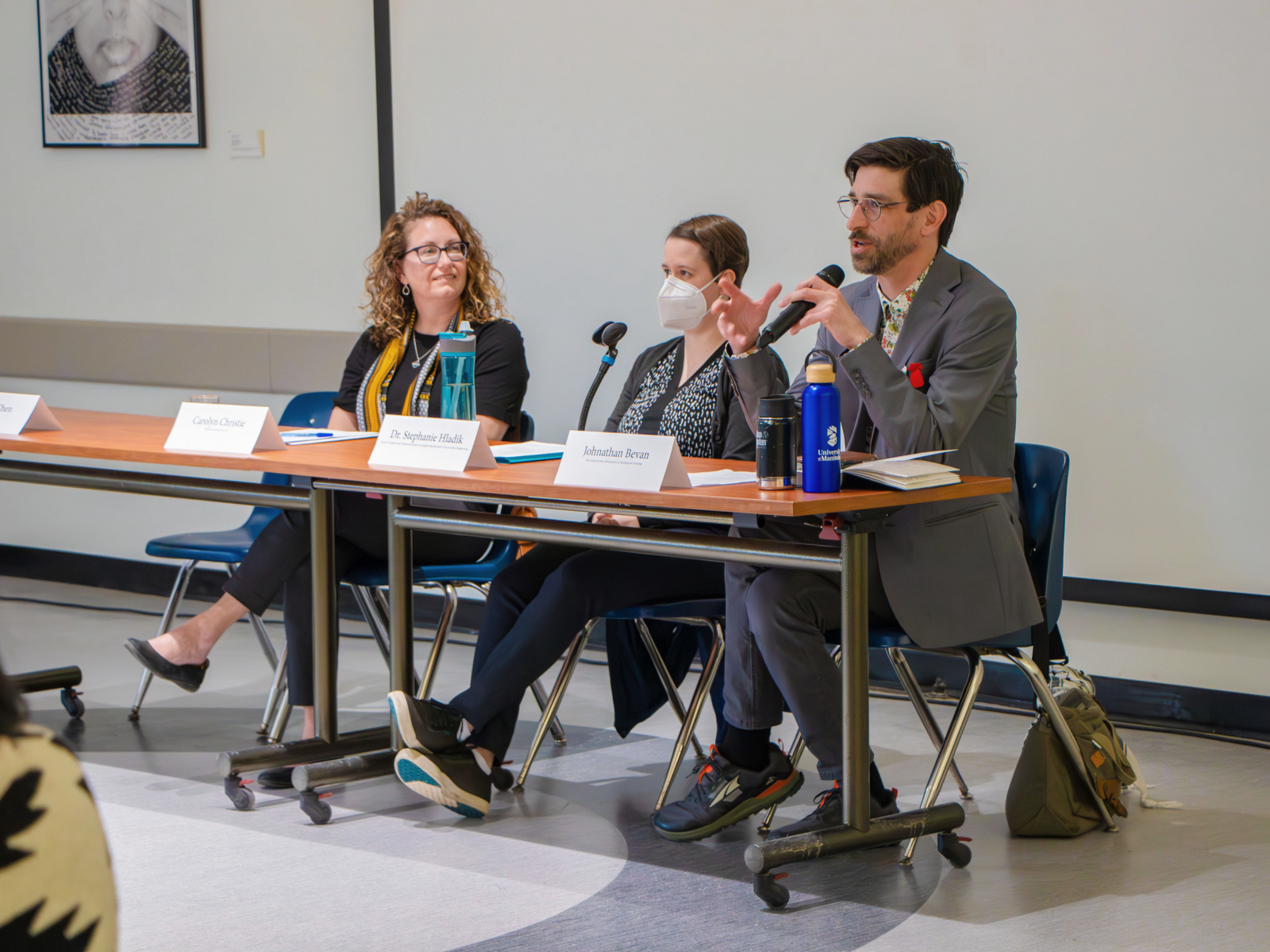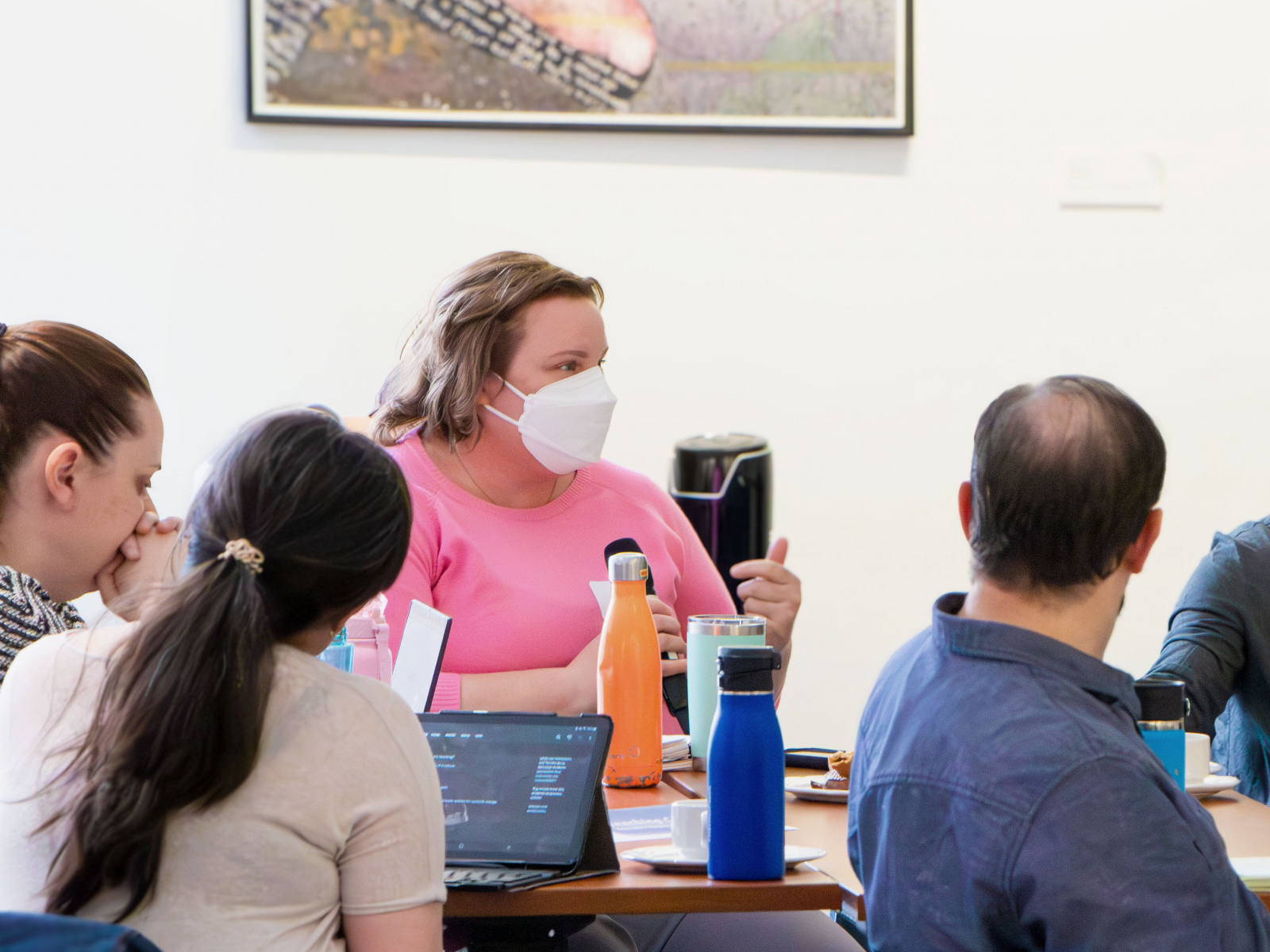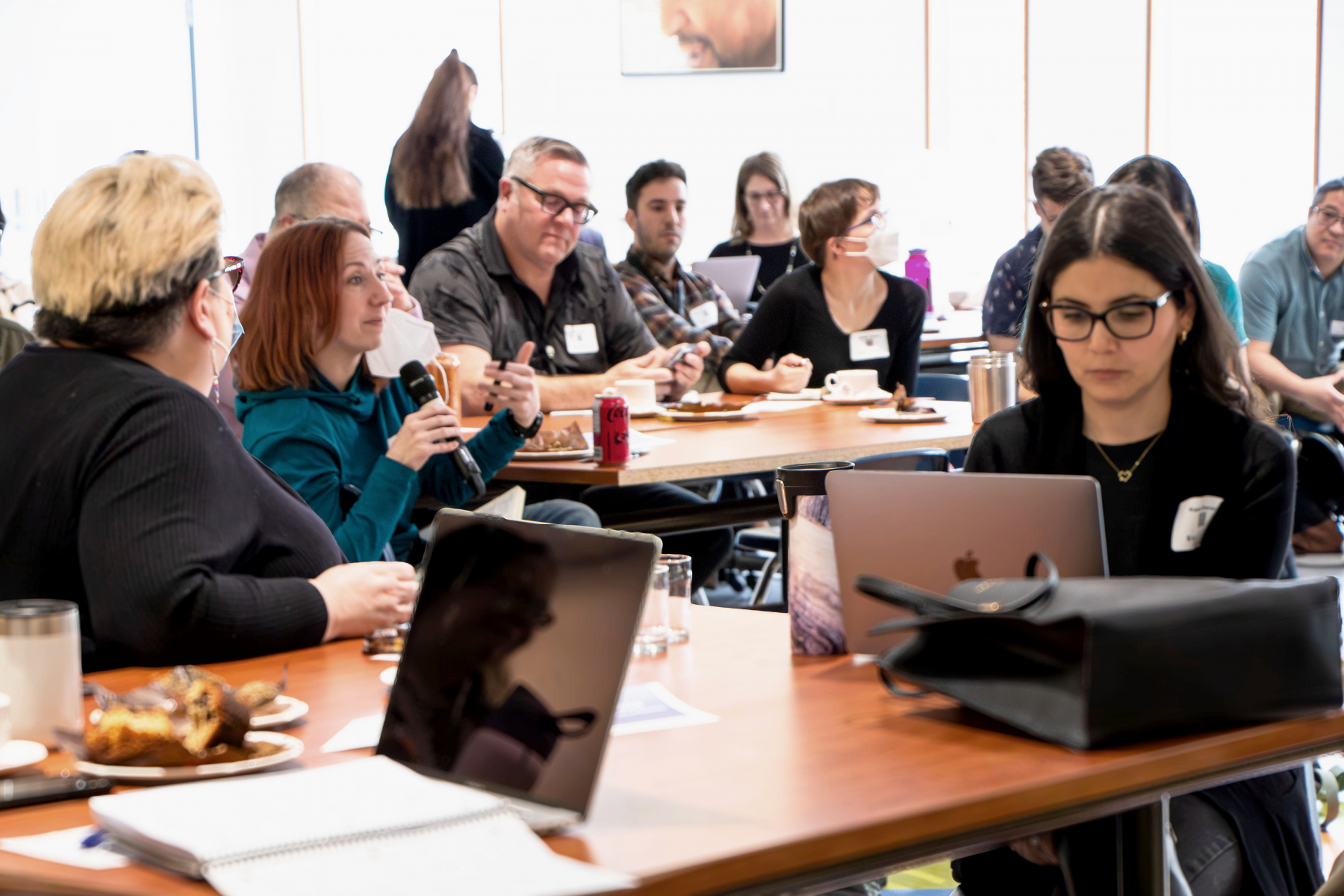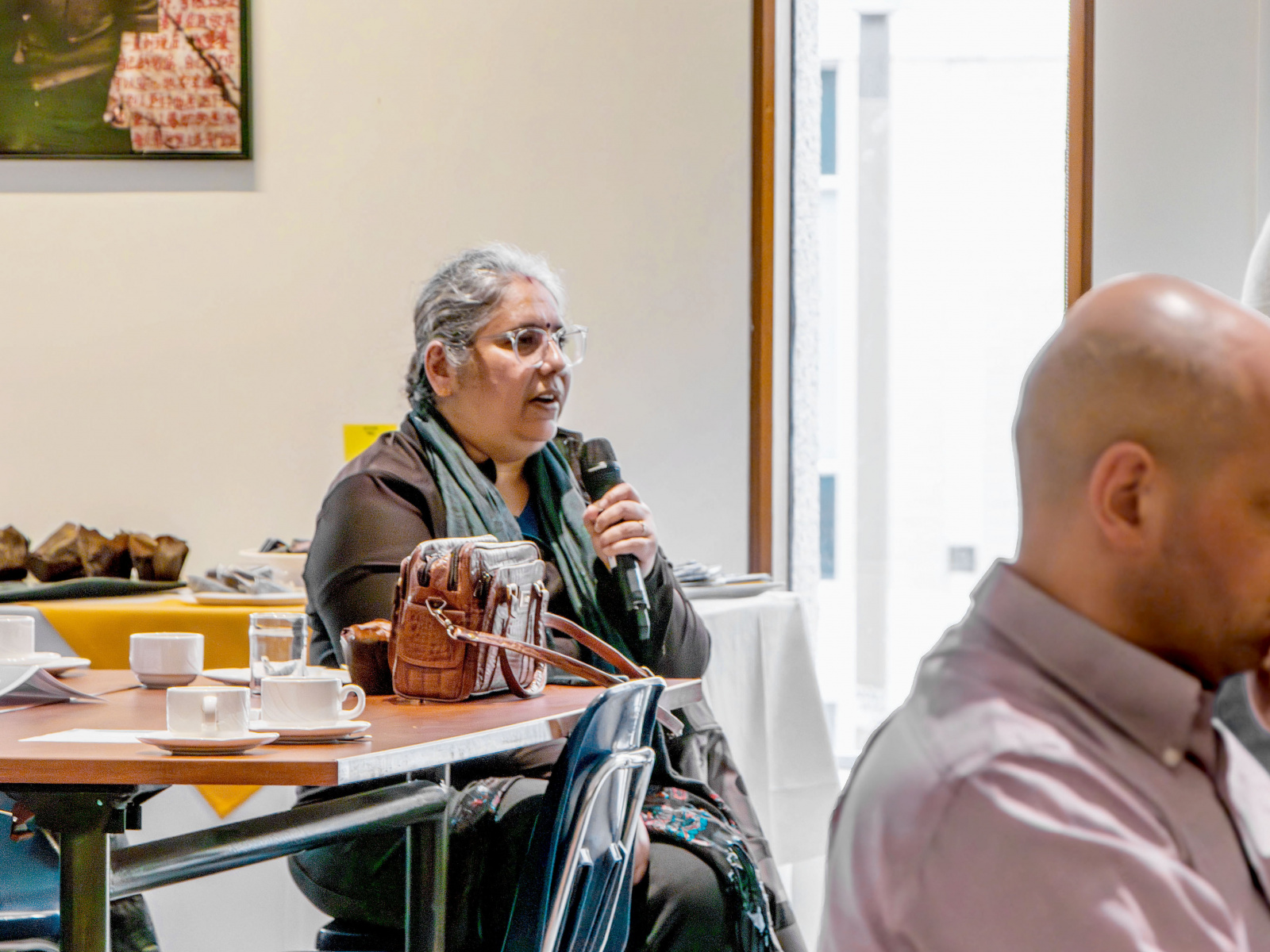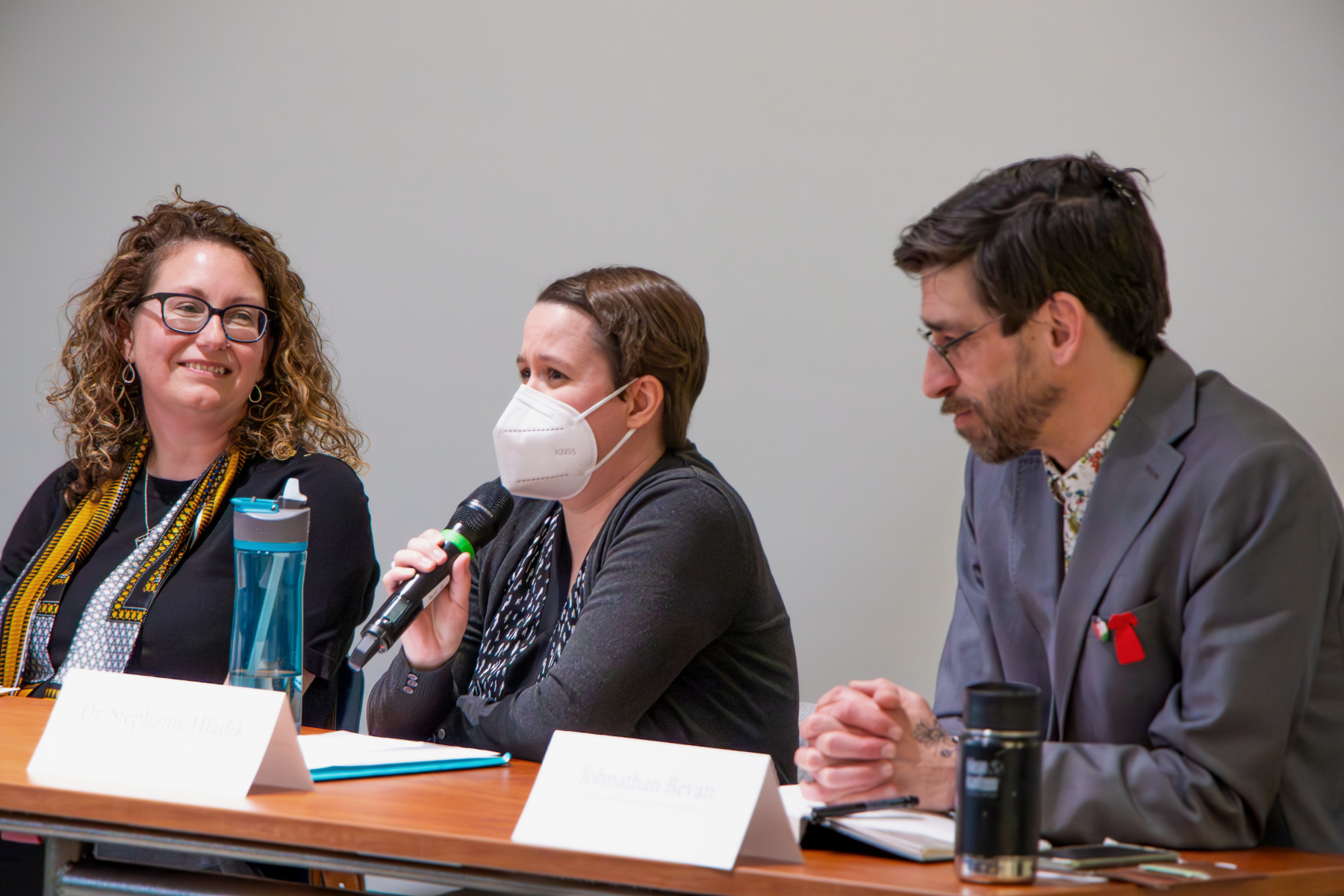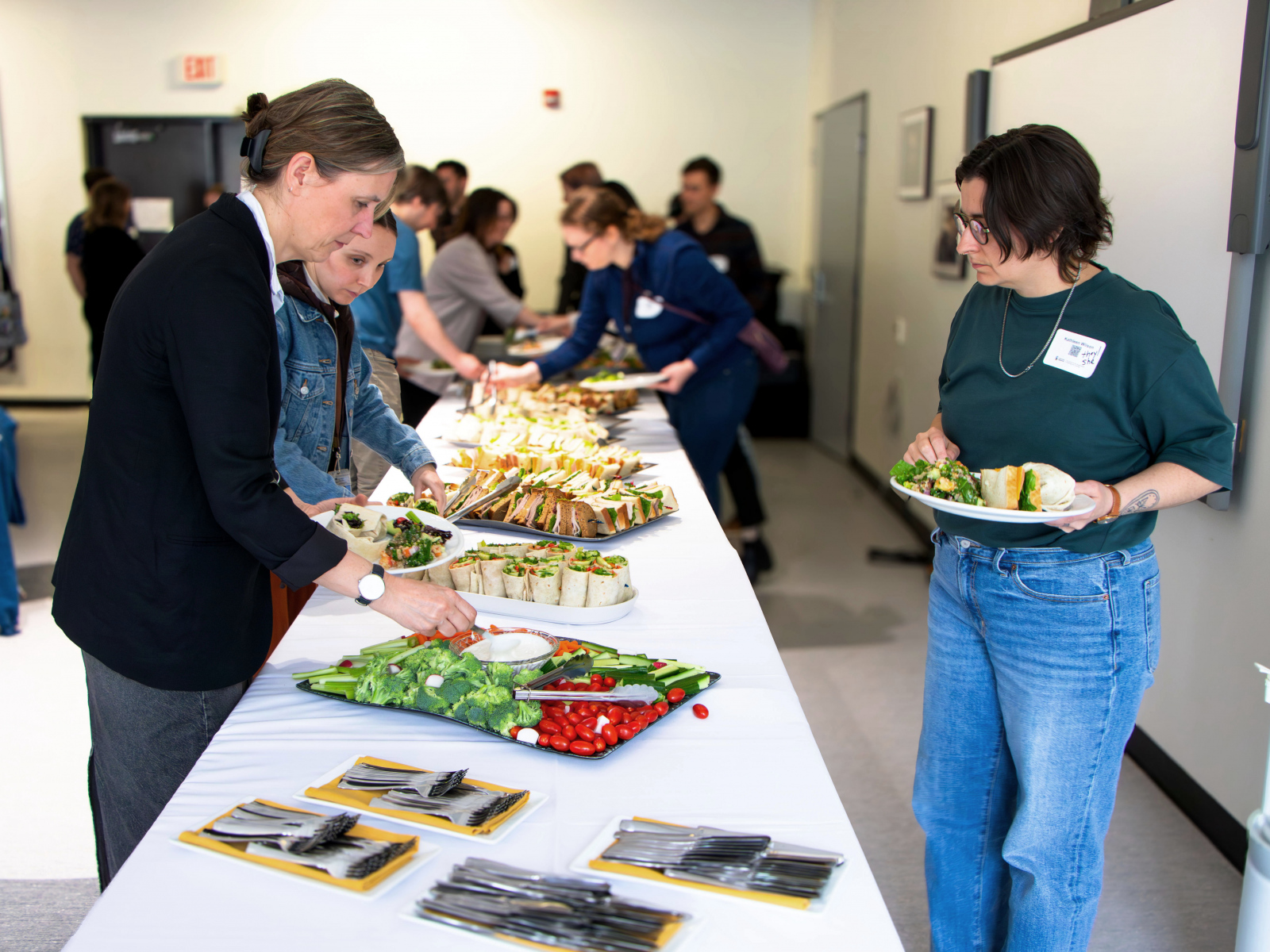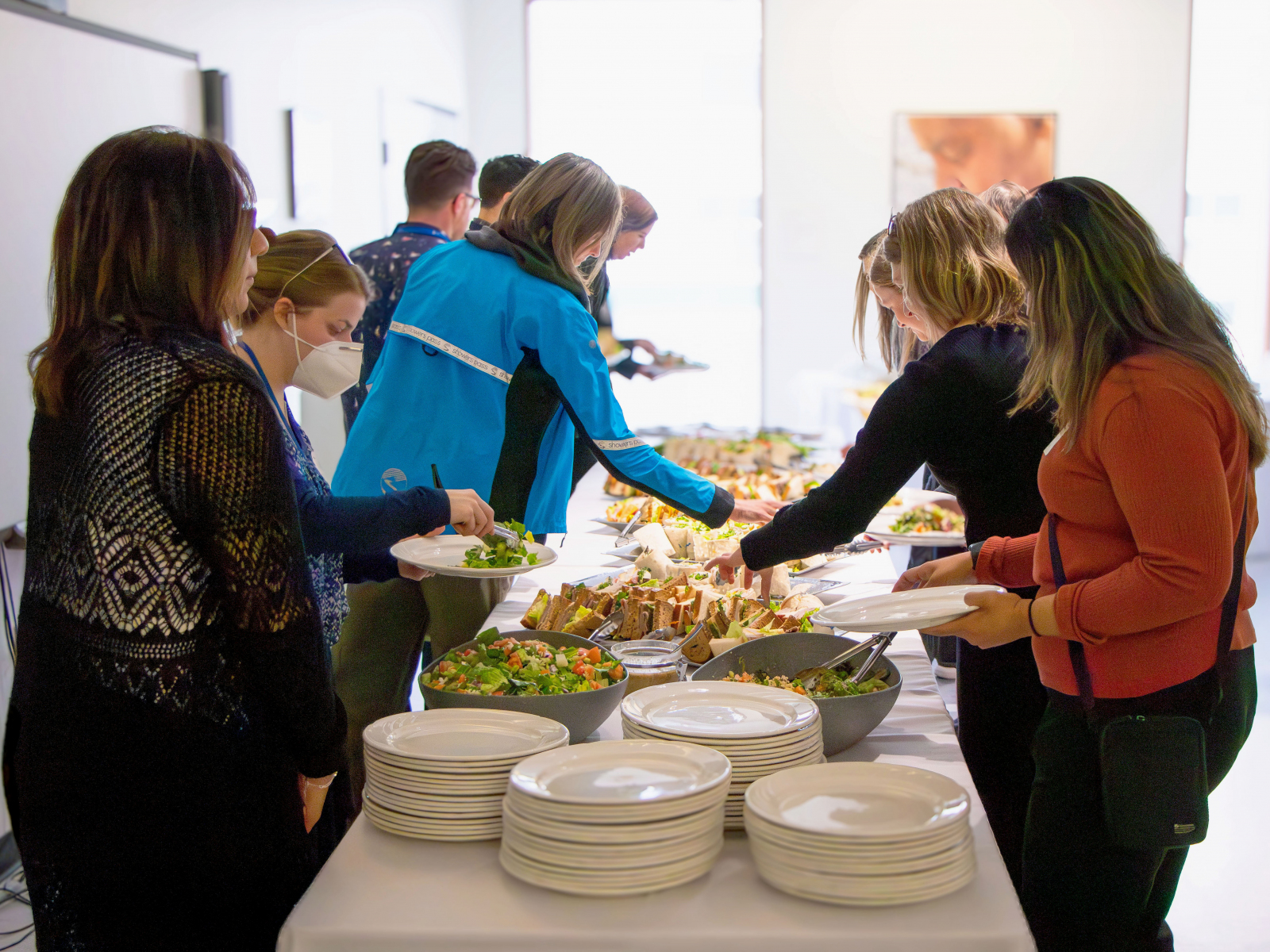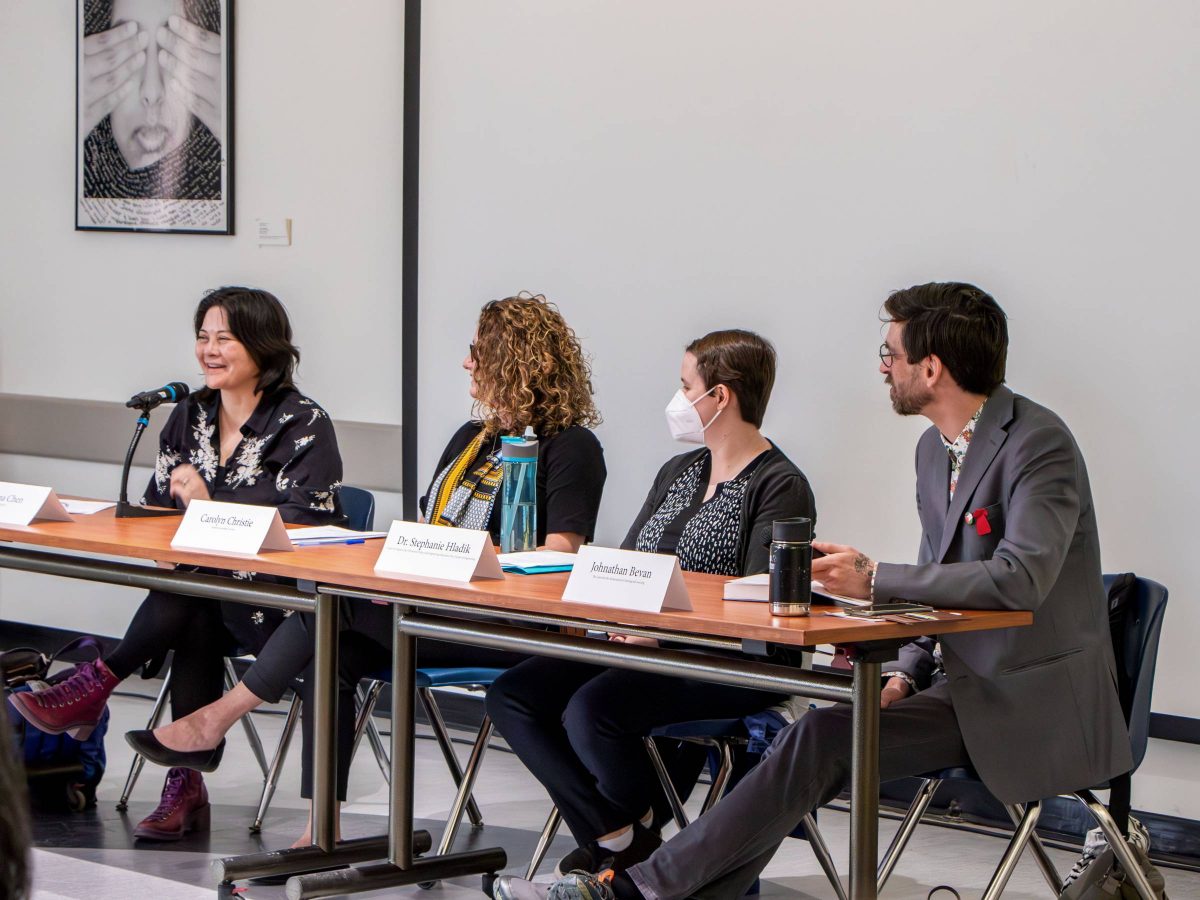
From left to right, Tina Chen, Vice-Provost (Equity), Carolyn Christie, Student Accessibility Services Director, Dr. Stephanie Hladik, Assistant Professor, Centre for Engineering Professional Practice and Engineering Education, Johnathan Bevan, Educational Developer, The Centre for the Advancement of Teaching and Learning
Everyone can benefit from accessible teaching practices
Teaching Café highlights how small actions by instructors and evolving UM strategies contribute to student success
The desire and need to implement accessible course design principles increases with each passing year across all levels of education. Accessibility is many-layered, and knowing where to start as an instructor and in what direction to go can seem overwhelming.
At this year’s Teaching Café, hosted May 1 by The Centre for the Advancement of Teaching and Learning, four UM panelists presented basic concepts of accessibility, shared thoughtful approaches for the classroom, and encouraged both small, cumulative actions and strategic planning to bring about positive change.
Removing the burden of proof for everyone’s benefit
Event moderator, The Centre’s Johnathan Bevan, opened the session with a series of broad definitions and invitations to help set a foundation for discussion.
As an Educational Developer specializing in accessible course design, Bevan acknowledged that the topic of accessibility presents a complex narrative, and moving toward accessibility in teaching begins with recognizing that universities are inherently ableist in their design. Institutions have often excluded individuals based on arbitrary barriers such as mobility, sensory impairments, cognitive and psychological diagnostic criteria, and many other categories.
“We want to examine our practices, examine how we are interacting with each other and how to make room for all kinds of people,” he said.
Accessible design benefits both those who identify as disabled and those who do not; for example, a noisy HVAC system in a classroom can negatively affect those who don’t identify as hearing impaired, or some people may be disabled for short periods of time due to illness or injury. Inclusivity, noted Bevan, helps those who don’t know that they might need accommodations to be successful and also those who don’t know how to ask for help.
“Embracing accessible pedagogy means respecting people’s right to exist,” he offered. “When we begin from a place of trust and move to design courses to be inclusive, we remove the burden of proof regarding a disability from the individuals.”
Rethinking classroom practices for a positive impact
Panelist Dr. Stephanie Hladik, Assistant Professor in the Price Faculty of Engineering, has successfully introduced inclusive practices in her teaching. She described how a defining moment came for her last year, on the topic of lecture slides. She had been wrestling with whether to post her slides online for students before or after each lecture, and she had decided on the latter, thinking that would encourage students to attend class.
She changed this practice after a student whose first language was not English let her know (in an anonymous survey) that having the slides ahead of class would help them prepare and allow them to better follow along in class.
“That flipped my thinking,” she says. She then began analyzing her other classroom practices. “It came down to my values. Am I worried about students who are trying to game the system? Is it worth it to stop one student from gaming the system if I now have 10 students who are struggling to keep up in lectures? That reflection has been helpful for me. I would like students to learn what I am teaching, in a way that works for them.”
She has also instituted a “late pass” system where her students can hand in late work five times per term, no questions asked. Students have told her they appreciate the flexibility as they juggle workloads from other courses. And she now also receives much fewer emails from students asking for assignment extensions.
“It’s about making students feel valued and welcome,” she says.
Dialing down the power dynamic
Carolyn Christie is the Director of UM’s Student Accessibility Services (SAS), working to support students identifying as having a disability – who now number 2,700 across UM campuses. SAS looks at all aspects of a student’s university journey, from recruitment, application, access to online and physical spaces, the classroom experience, program requirements, and how they’re progressing – all the way to convocation or whatever their journey’s end might be.
Christie emphasized how important a student’s relationship with an instructor is for their success. “What are we doing in the classroom to engage all students?” she asked. “When students report back to us about how their year went, their relationship with faculty is the main thing, and not so much about this or that door didn’t open.”
She invited instructors to consider the power they have, how students feel when they approach them, and whether that promotes learning. “Students are often extremely scared. We run coaching sessions with students, on how to talk to their instructor if they don’t understand an assignment.” Building positive relationships is key to empowering people to ask for help.
Thinking strategically to make meaningful change
Panelist Dr. Tina Chen serves as UM’s Vice-Provost (Equity), the newly created position to advance the university’s vision and work around all kinds of equity and anti-oppression for students, staff and faculty.
“We are becoming better informed,” she said. “My office helps support people in their understanding of ableism as a system of oppression, to begin to identify actions they can take and then to support collective transformation within units.”
Chen suggested that instructors who are taking steps toward inclusive practices should advocate to have accessibility principles embedded in ongoing department or unit EDI strategic plans, so that ableism is identified as a system of oppression, along with the many other barriers that exist at institutions.
“Get some real commitments in there, because that is the opening for you to be the advocate among your colleagues to think about how you might change practices,” she said.
Learn more about accessibility
At The Centre for the Advancement of Teaching and Learning, we will collaborate with you to make your pedagogy more accessible for everyone who comes into your classroom. Whether you need a review of a specific element of your course or a full overhaul, we will be there to help you design for inclusion.
Learn more about accessible course design coaching
Learn more about the Teaching and Learning Certificate Program
The Teaching and Learning Certificate Program has been specifically designed to accommodate the busy schedule of faculty: limited classroom hours, flexible workshop offerings, supportive mentoring and individualized teaching feedback.
Learn more about the Teaching and Learning Certificate Program







